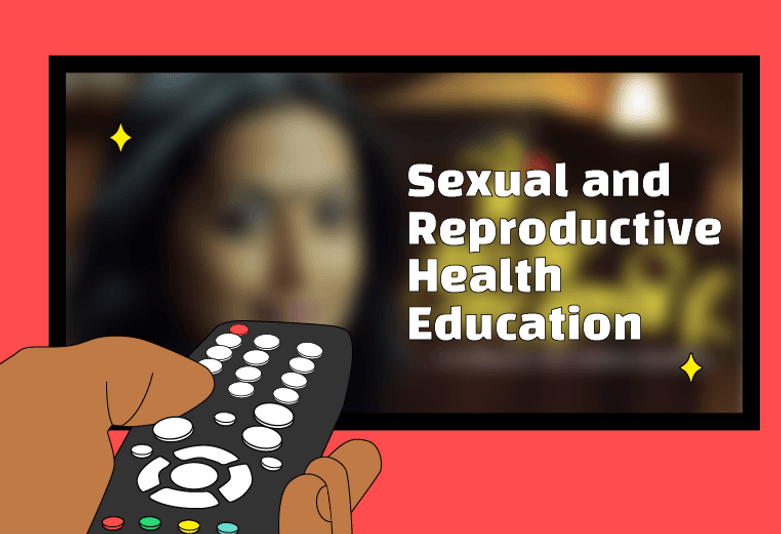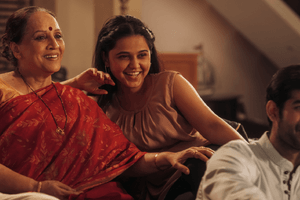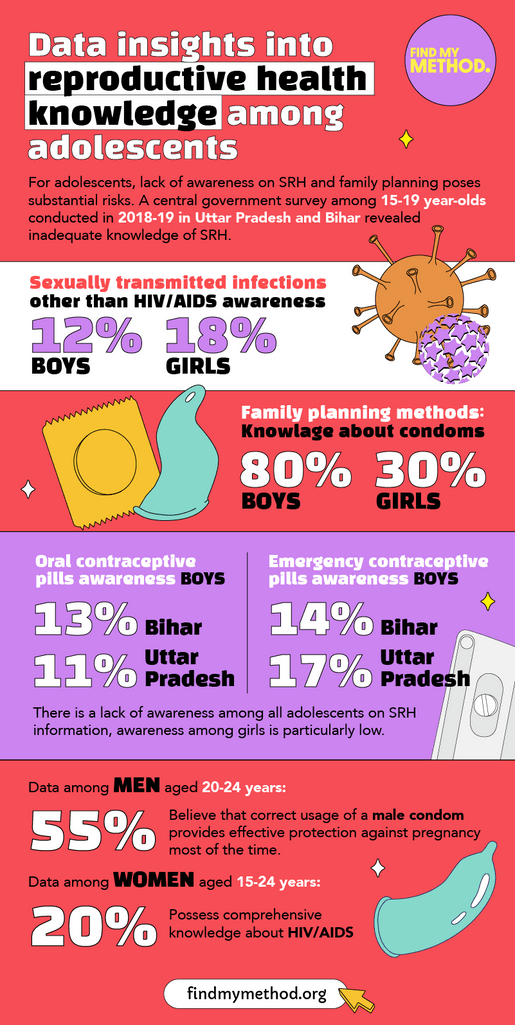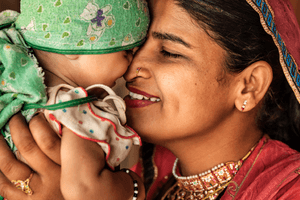By Poonam Muttreja
In village Bairiya in Uttar Pradesh, a once-taboo-topic: sexual and reproductive health was brought out of the shadows through the transformative power of a television series on Doordarshan, Main Kuchh Bhi Kar Sakti Hoon (MKBKSH), developed by the Population Foundation of India. The show’s impact was profound, initiating conversations around crucial issues like girls’ education, underage marriage, family planning and gender equality. As barriers of silence crumbled, Bairiya witnessed a remarkable shift—open discussions on sexual and reproductive health, increased girls’ education, delayed marriages, and informed family planning choices.
This remarkable change was not limited to Bairiya alone – it radiated to countless villages and towns that chose openness over stigma. People became more open while discussing Sexual Reproductive Health (SRH), more girls started going to school, marriages were delayed and the importance of family planning – along with family planning methods – were discussed not just by women but also by adolescent girls. A revolution in awareness led to monumental changes not only in Bairiya but many other villages and towns which chose to become more open.
For adolescents, lack of awareness on SRH and family planning poses substantial risks. A central government survey among 15-19 year-olds conducted in 2018-19 in Uttar Pradesh and Bihar revealed inadequate knowledge of SRH. Only a quarter of boys and girls in Bihar, 12% boys and 18% girls in Uttar Pradesh were aware of sexually transmitted infections other than HIV/AIDS. There was a stark contrast among adolescents on the awareness of family planning methods. While about 80% in boys in UP and Bihar knew of condoms, this number was as low as 30% among girls in the same states. The awareness of oral contraceptive pills was as low as 13% and 11% among boys in Bihar and Uttar Pradesh. The knowledge of emergency contraceptive pills was 14% and 17% among boys in Bihar and Uttar Pradesh, but as low as 2% and 3% among girls in the state, indicating while there is a lack of awareness among all adolescents on SRH information, awareness among girls is particularly low. This makes them vulnerable to unwanted pregnancies and other risks such as sexually transmitted diseases.
The lack of awareness continues as adolescents transition into married adults. Among men aged 20-24 years, only 55% believe that correct usage of a male condom provides effective protection against pregnancy most of the time. Among women between 15-24 years, only 20% possess comprehensive knowledge about HIV/AIDS, whereas, among their male counterparts, this percentage is slightly higher at 29%.
Explore Contraception Options Available in India
National level efforts for prioritise adolescent health and well-being in the national agenda
The Ministry of Health and Family Welfare has long recognized the need to prioritise adolescent health and well-being in the national agenda. The need for information among adolescents is recognised as a key priority of the Rashtriya Kishor Swasthya Karyakram (RKSK) or the National Adolescent Health Programme, launched in 2014. The programme focuses on strengthening Adolescent Friendly Health Clinics (AFHC) which provide information and counselling on sexual and reproductive health issues.
The services at AFHCs include adolescent health issues from SRH to nutrition, substance abuse and violence – including gender-based violence. These services are required to be provided at the Primary Health Centers (PHCs), Community Health Centers (CHCs) and District Hospitals (DHs) and Medical Colleges.
The Adolescence Education Programme (AEP) aims to reach out to young people and empower them with accurate “age-appropriate and culturally relevant information” so that they are able to obtain verified and correct information easily.
Social barriers
However, it is also important to overcome social barriers that deter adolescents from accessing information and services pertaining to their sexual and reproductive health. Overcoming these barriers necessitates a societal shift, where SRH discussions are accepted within families, schools, and healthcare settings.
Media is a powerful tool for changing social norms. A family watching a television series together is the first step in overcoming the barrier of silence. For instance, in a village of Uttar Pradesh, the programme helped people in overcoming their hesitation in discussing SRH issues. “Earlier we could not go to anyone to discuss family planning, reproductive health and menstruation, but ever since we started watching MKBKSH – we have become more confident,” says Reena (name changed). In Hardiya village in Nalanda, girls run a Kishori Samooh and have set up sanitary pad banks to help girls in the community conveniently access sanitary pads. The adolescent girls who participate in these forums discuss not just menstruation, but also family planning methods and advise married women on the adoption of contraceptives.
Indeed, empowerment and openness can ignite many minds and trigger a domino effect of positive change. Knowledge empowers individuals to make informed choices, influencing not just their lives but the broader fabric of society. A woman who decided to adopt a family planning method in a village in Bihar noted, “It is not about the family or husband, it is about me. Having more than two children means I will not be able to afford their education and other expenses.” This is a testament to the interconnectedness of socio-economic realities that impact women’s lives and their families. The small efforts made today can catalyse significant social transformations for India.
(The author is the Executive Director of Population Foundation of India)
Do you have something to share? Contact us on our social media platforms: Facebook, Instagram, Twitter, YouTube and TikTok, or send us an email to info@findmymethod.org. For more information on contraception, visit findmymethod.org.



